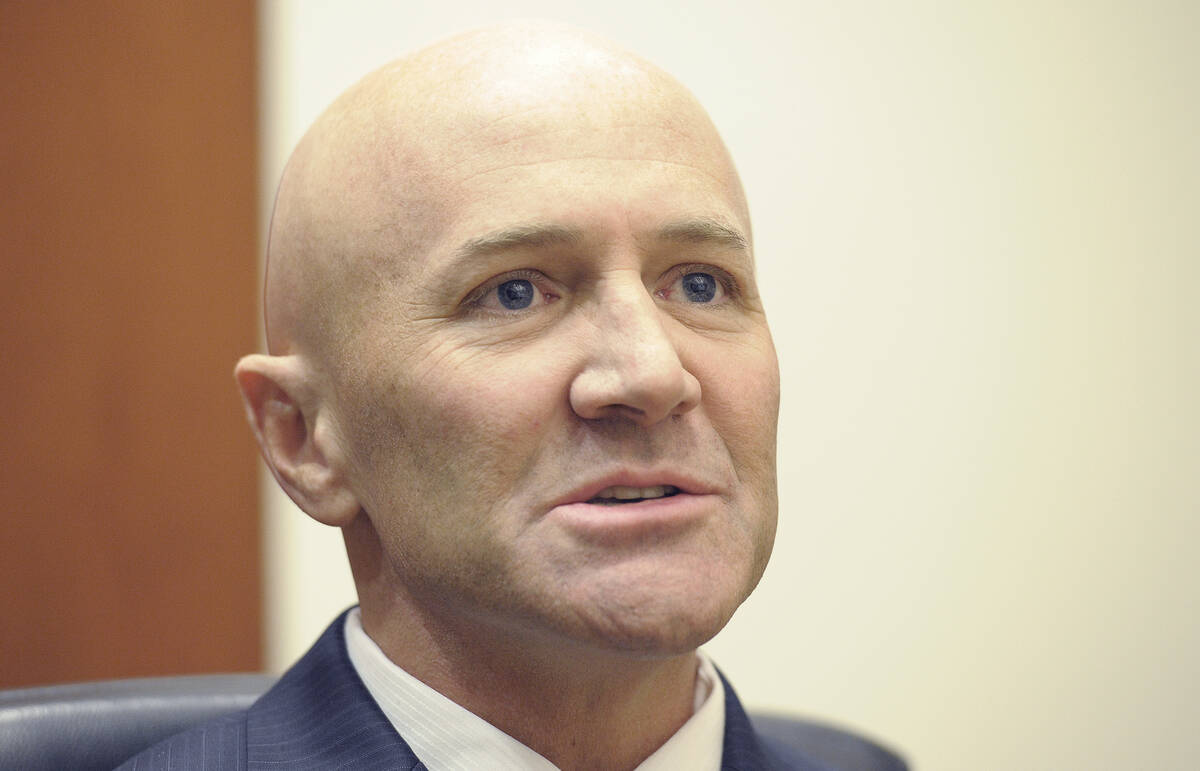Family Court Judge Mathew Harter dies at age 56
A Clark County Family Court judge died Wednesday after serving on the bench for 14 years.
Judge Mathew Harter, who presided over Family Court Department N, died just after 11 a.m. Wednesday at University Medical Center, according to the county coroner’s office. He was 56.
The coroner’s office said Harter’s official cause and manner of death were pending.
In a statement released Wednesday night by attorney Steve Dixon, Harter’s family urged anyone “struggling with mental health issues to please seek immediate help from loved ones and licensed professionals.”
Dixon also indicated that Harter’s wife requested that media outlets provide the suicide prevention hotline number in articles about Harter’s death.
“In this difficult time we are deeply saddened by the loss of our loving husband, father, and friend,” Harter’s family said in the statement. “Mathew’s death comes as a tragedy to all who knew him. We are thankful for all of the love and support we have already received from so many family and friends, including attorneys and other members of the judiciary with whom he associated. We believe he has gone home to a better place.”
Chief District Judge Jerry Wiese announced Harter’s death in a memo to other judges on Wednesday afternoon.
“It is with much sadness that I let you know, it was just reported to me that Judge Harter passed away today,” Wiese wrote, according to a copy of the email obtained by the Las Vegas Review-Journal.
Wiese did not say how Harter died.
“Please keep his family in your thoughts and prayers,” the chief judge wrote.
Harter was first elected to the bench in 2008, was re-elected in 2014 and ran unopposed in 2020. He also served as an arbitrator in District Court from 2004 to 2008.
He ran unsuccessfully for the Nevada Supreme Court in 2018 against Lidia Stiglich.
While running for the Supreme Court seat, Harter described himself as “conservative” and “a textualist” in his judicial decisions. In the Las Vegas Review-Journal’s 2018 voter guide, Harter wrote that he always wanted to serve his home state in a judicial capacity.
Louis Schneider, a family law attorney who knew Harter for 16 years, said he was stunned to hear of his friend’s death.
“There’s going to be a lot of hurt people over this,” he said.
Harter was born in Reno and lived in Las Vegas since he was a child, according to his biography on the District Court website. He was married with eight children and one grandchild.
According to the Review-Journal’s 2018 voter guide, Harter graduated from Bonanza High School in 1984, attended UNLV and then graduated from Western Michigan University’s law school in 1994.
Harter received a 71 percent retention score in the Review-Journal’s 2013 Judicial Performance Evaluation, but that number dropped to 48 percent by the 2019 review, meaning the majority of responding attorneys that year said he should not be retained.
The judge told the newspaper at the time that the lower score may have been the result of a smear campaign by the president of Veterans in Politics International.
Harter’s best friend was “Marshal Bill” Datthyn, the judge told the Review-Journal at a celebration of life shortly after his friend’s death. Datthyn was a deputy marshal who worked in Harter’s courtroom until he drowned in 2017.
Schneider said that Harter still kept a picture of Datthyn in his courtroom and that the death affected him for years.
The attorney remembered Harter as a serious but fair judge who was known to have a “great poker face” during court.
“He was a good guy, a really good guy,” Schneider said.
If you’re thinking about suicide, or are worried about a friend or loved one, help is available 24/7 by calling or texting the Lifeline network at 988. Live chat is available at 988lifeline.org.
Contact Katelyn Newberg at knewberg@reviewjournal.com or 702-383-0240. Follow @k_newberg on Twitter.























